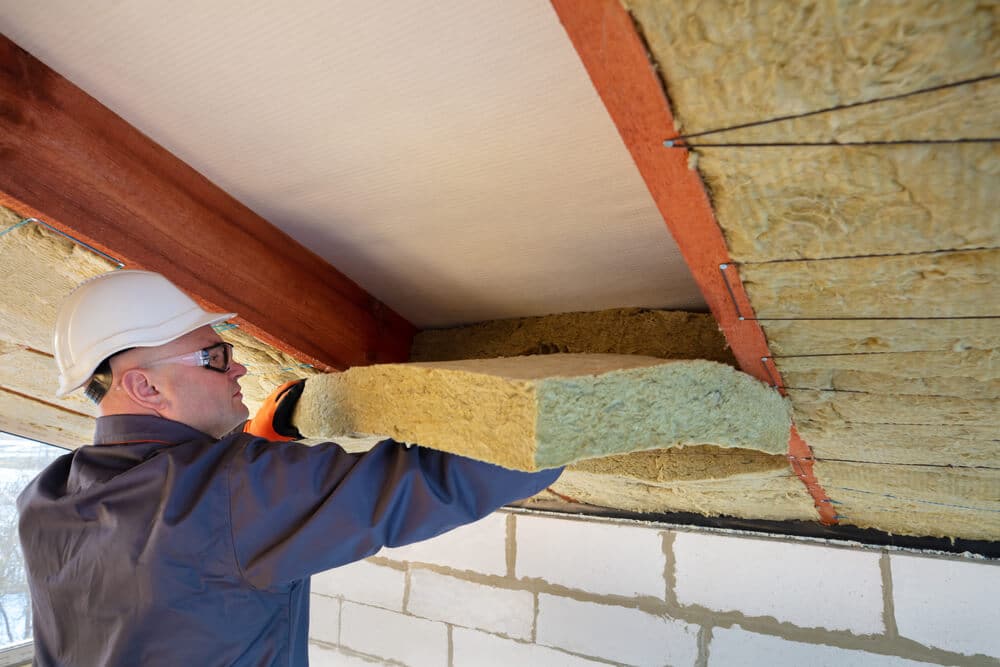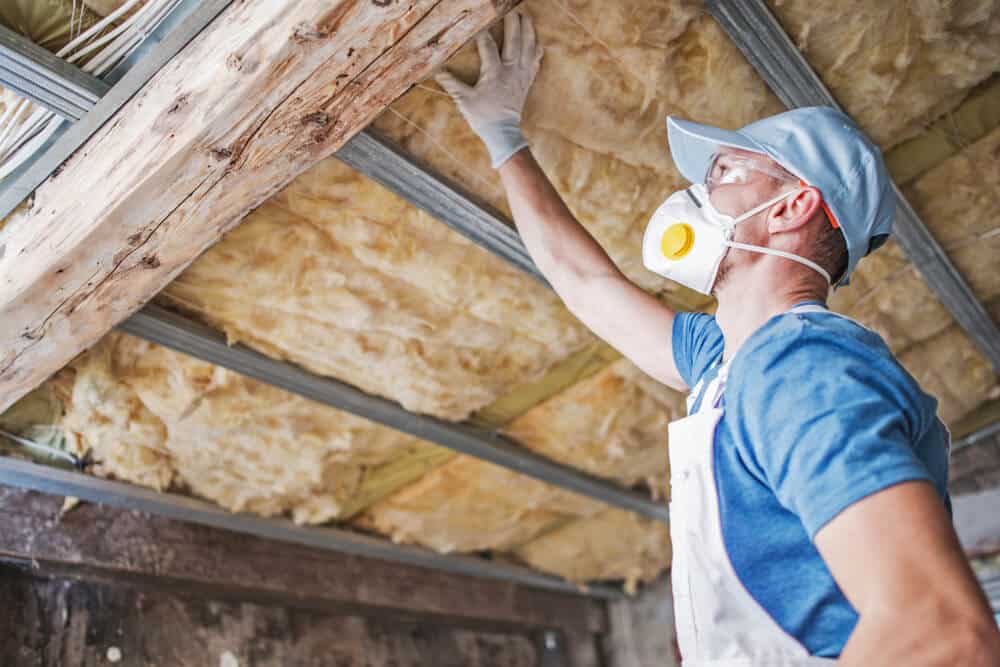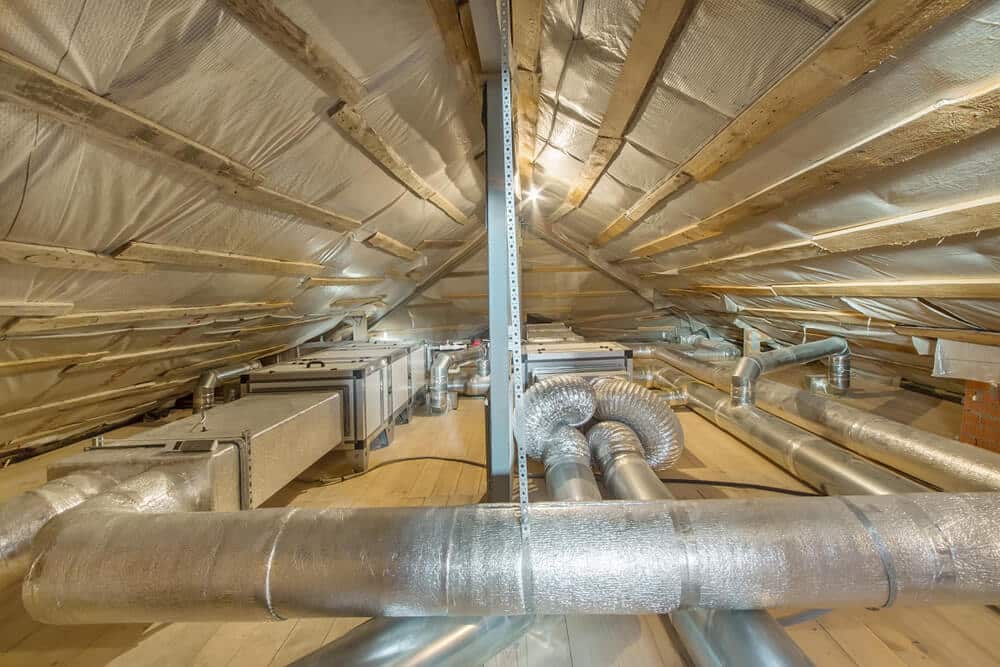No one likes a noisy roof. At best, it disturbs your day-to-day, and at worst, roof noises make you feel like you are in a thriller or horror movie. If you hear a roof knocking sound, roof creaking, or a roof cracking noise, you are probably wondering why does my roof make noises?
The good news is that this problem is more common than you may realize. There are several potential causes of a roof popping noise. Keep reading to learn about the leading causes of a noisy roof and the solutions you can implement to give you some peace and quiet.
Leading Causes of Roof Noises
These are the primary causes of a noisy roof. Depending on the situation, you might deal with a combination of these problems.
Old Age
Several factors can cause roof noises, but one of the most common causes is simply old age. As your roof ages, it may start to make popping or creaking noises, especially during high winds or periods of rain. The noise is due to many structural issues that can arise as roofs age, such as deteriorated roofing materials or loose flashing.
Old age is one of the most challenging problems for a noisy roof because it can be hard to identify the source of the problem. You may need to replace the entire roof if your roof is old and creaky. Old age is one of the number one reasons why cedar shake shingles make noise.
Thermal Contraction and Expansion
One possible cause of a noisy roof is thermal contraction and expansion. When the temperature outside changes, it causes your roof to expand or contract in response. The expansion of the roof can cause it to creak and pop, which can be disruptive and annoying.
There are solutions if your roof is making noise due to thermal movements. You will need to take one of several different approaches to align the temperatures inside and outside of your roof.
Pressure From the Wind
Many factors can cause roof noises, but one of the most common causes is pressure from the wind. This pressure can cause the roof to pop and creak as it tries to accommodate the changes in levels. The wind is likely the culprit if you hear loud noises from your roof.
To prevent this, it is crucial to ensure proper roof sealing and a well-ventilated roof. Sealing and ventilating your roof will help reduce the wind pressure and minimize any roof noises. Additionally, you may want to invest in some added roofing insulation or a weather proof roof coating to further protect your roof from storm damage.
HVAC System
Problems with your HVAC system commonly cause roof noises. If your roof is making a popping noise, for example, it may be because the ducts in your attic are not correctly sealed. Poor seals can result in loose joints and roof popping noise when the air passes through them.
Structural Damage
Another common cause of roof noises is creaking. Roof creaking can be due to structural issues with your roof, such as loose or warped boards or nails that are not adequately secured. The foundation settling can cause structural damage to your home, which can cause the roof beams to shift and move.
Leaks and water damage are other sources of structural damage that can cause roof noises. If you notice roof creaking noises in your roof, having a professional inspect your roof for signs of structural damage is a good idea.
Damaged Roof Parts
Damaged or worn-out roof parts can also cause roof noises. One common reason for a noisy roof is roof popping, which occurs when small pieces of debris get trapped between the roof and the asphalt shingles. This debris can lead to a loud roof popping noise or creaking noise as the waste moves with temperature changes.
Another common cause of a noisy roof is damaged or loose flashing, which may result in roof creaking or scraping noises as the roof moves. If you suspect your roof is making noise due to damaged or loose parts, you need to identify the noise source before attempting any repairs.
How to Stop Roof Noises
Now that you know the different causes of a noisy roof, these are some potential solutions.
Fasten and Tighten
Start by fastening loose components and tightening everything else. Loose components such as flashing or wiring can cause a roof popping noise when wind or rain hits the roof. Tightening these loose components can help stop the noise.
Regularly Inspect and Clean Gutters and Downspouts
Gutters full of debris or clogged with leaves can cause a roof to creak or pop. Regularly cleaning gutters and downspouts can help prevent noisy roofing issues and keep your roof in good condition.
Improve the Ventilation
Although it may seem counterintuitive, ensuring your roof has proper ventilation can help reduce noise. Ventilation allows wind and rain to flow around the roof more efficiently, minimizing the impact on the structure and quieting any creaking or rattling sounds. It will also allow the roof to regulate its temperature.
Use Insulation

If your roof is creaking or rattling due to temperature fluctuations, using insulation can help. Insulation creates a layer of protection that prevents heat from entering or escaping, making the roof more stable and quieter.
Hire a Roofing Professional
If you are unsure what to do, contact a roofing professional. These roofing experts will be able to evaluate your roof and help you determine the best course of action for stopping that noise once and for all. It may be tempting to try and solve the problem yourself, but this can be more expensive in the long run.
Silence Your Noisy Roof
No matter what is causing your roof noises, taking steps to address the issue can help reduce the noise and keep your roof in good repair. Whether it’s tightening loose components, cleaning out gutters and downspouts, improving ventilation, or hiring a roofing professional, these are all great ways to stop your roof from making noise.
Our experts at Perfect Exteriors can keep your roof in excellent condition and stop those annoying noises. Contact us today.



